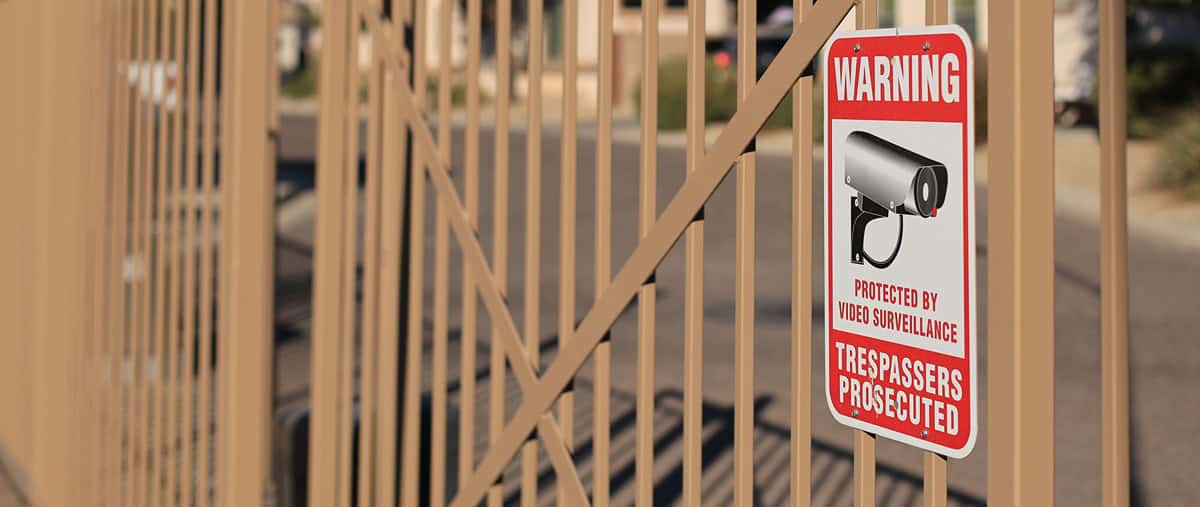Listen To This Page:
Quick Navigation:
- What’s the Difference Between Theft, Trespassing, Burglary, and Robbery?
- Is it Considered Trespassing to Enter an Abandoned Property?
- What are Squatters Rights in Arizona?
- Is it Theft if You Take From an Abandoned House?
- FAQ: Burglary and Abandoned Buildings in Arizona
- Contact a Criminal Defense Attorney From CHM
Burglary is a serious offense in Arizona, but what happens when the building in question appears to be abandoned?
Many people assume that entering an abandoned property doesn’t carry the same legal consequences as breaking into an occupied home or business, but this is not always the case. Arizona law can still consider it illegal to enter or take items from an abandoned building, depending on the circumstances.
Whether the property is truly abandoned, owned by someone, or simply neglected, entering without permission can lead to criminal charges such as trespassing, burglary, or theft. At Colburn Hintze Maletta (CHM), we are committed to defending our clients against these complex charges, ensuring that every aspect of your case is carefully considered to achieve the best possible outcome.
Get Immediate Help from Our Criminal Defense Attorneys.
We are Available to Talk Now.
Or, Continue Reading Below About:
Is it Illegal to Burglarize an Abandoned Building in Arizona
What’s the Difference Between Theft, Trespassing, Burglary, and Robbery?
Understanding the distinctions between theft, trespassing, burglary, and robbery is crucial in Arizona law, as each offense carries different legal implications and penalties:
- Theft: Defined under Arizona Revised Statutes (ARS) § 13-1802, theft occurs when someone knowingly takes property that does not belong to them with the intent to permanently deprive the owner of it. Theft can range from misdemeanors to felonies, depending on the value of the stolen property.
- Trespassing: Trespassing, outlined in ARS § 13-1502 through § 13-1504, involves unlawfully entering or remaining on someone else’s property. Trespassing can be a misdemeanor or a felony, depending on the circumstances, such as whether the property was fenced or the trespasser was armed.
- Burglary: Burglary, as defined in ARS § 13-1506 through § 13-1508, involves unlawfully entering or remaining in a building or structure with the intent to commit theft or any felony inside. The degree of burglary—first, second, or third—depends on factors like the type of building entered and whether a weapon was involved.
- Robbery: ARS § 13-1902 defines robbery as the act of taking another person’s property by force or threat of force. Unlike burglary or theft, robbery involves direct confrontation with the victim and is considered a more severe crime.
Is it Considered Trespassing to Enter an Abandoned Property?
Entering an abandoned property may seem like a victimless act, but Arizona law still classifies it as trespassing under certain conditions. According to ARS § 13-1502, trespassing occurs when someone knowingly enters or remains unlawfully on another person’s property. The key issue is whether the property is truly abandoned or still owned by someone, even if it is not actively being used or maintained.If the property is still owned, even in a state of disrepair or neglect, entering without permission can be classified as trespassing.
What are Squatters Rights in Arizona?
Squatters’ rights, also known as adverse possession, allow someone who has lived on an abandoned or unoccupied property for a certain period to potentially claim ownership. A person can acquire legal title to a property if they have occupied it continuously, openly, and without the owner’s permission for at least ten years.
However, squatters’ rights are complex and not automatically granted. The individual must also meet other legal requirements, such as paying property taxes and making improvements to the property.
Is it Theft if You Take From an Abandoned House?
Taking items from an abandoned house can still be considered theft under Arizona law. ARS § 13-1802 defines theft as taking property with the intent to permanently deprive the owner, regardless of the property’s condition or the owner’s apparent abandonment.
Even if a house appears abandoned, it is likely still legally owned by someone, and taking items from it without permission could result in theft charges. The value of the items taken can determine whether the theft is charged as a misdemeanor or felony, affecting the severity of potential penalties.
FAQ: Burglary and Abandoned Buildings in Arizona
- What constitutes burglary in an abandoned building? Burglary involves unlawfully entering an abandoned building with the intent to commit theft or any other felony inside. This is a criminal offense under Arizona law.
- Can I be charged with burglary if I didn’t steal anything from the abandoned property? Yes, you can still be charged with burglary if you entered the building with the intent to commit a crime, even if no theft or felony actually occurred.
- Are the penalties for burglarizing an abandoned building different from burglarizing an occupied one? The penalties can be similar, depending on the circumstances, such as whether you were armed or if the building was a residence. The type of building and intent can affect the degree of the burglary charge.
- How can I prove a building was truly abandoned to defend against trespassing or burglary charges? Proving a building was abandoned can be challenging and typically requires evidence that the property was not maintained, occupied, or that ownership is unclear. A skilled attorney can help develop this defense.
- Can taking items from an abandoned building be considered theft? Yes, taking items from an abandoned building can be considered theft if the property is still legally owned by someone. Arizona law protects the rights of property owners, even if the property is not actively maintained.
- Do squatters have any legal rights in Arizona if they occupy an abandoned building? Squatters may acquire legal rights through adverse possession if they meet specific criteria, such as continuous and open occupancy for a minimum of ten years and paying property taxes. However, this is a complex area of law.
- Can I be charged with both trespassing and burglary for entering an abandoned building? Yes, you can be charged with both trespassing and burglary if you unlawfully enter an abandoned building and intend to commit a crime inside. Trespassing is typically considered a lesser included offense within burglary.
- Does the condition of the building affect whether entering it is considered a crime? The building’s condition, such as whether it is boarded up or clearly abandoned, may influence the case, but it does not eliminate the possibility of criminal charges like trespassing or burglary.
- Are there specific laws in Arizona related to the burglary of commercial versus residential abandoned properties? Yes, Arizona law differentiates between residential and commercial properties in terms of burglary charges. Burglary of a residential property is generally treated more severely than commercial burglary, even if the building is abandoned.
Contact a Criminal Defense Attorney From CHM
If you are facing charges related to burglary, trespassing, or theft in Arizona, having a knowledgeable and experienced criminal defense attorney on your side is essential. At Colburn Hintze Maletta (CHM), we understand the complexities of Arizona’s criminal laws and are dedicated to protecting your rights.
Our team meticulously reviews every detail of your case, crafting a defense strategy tailored to your unique situation. Whether negotiating plea deals, challenging evidence, or representing you in court, CHM is committed to achieving the best possible outcome for you. We pride ourselves on our client-centered approach, ensuring you feel supported and informed throughout the legal process.
If you’re facing charges, contact CHM today at (602) 825-2500 for a consultation. Let our experienced team fight for your rights and work toward the best possible outcome.

David Maletta is a widely respected criminal defense attorney with over 23 years of experience and has worked on over 1,000 cases and has successfully won over 100 jury trials. David graduated from Northern Arizona University, Magna Cum Laude in 1993 with a degree in Psychology. Shortly thereafter, he earned his Juris Doctor degree from Seton Hall University School of Law in 1998. He has extensive experience in criminal and DUI matters, homicide, sexually-based offenses, domestic violence, white-collar crimes, and various misdemeanor crimes.
Always Available 24/7 for Legal Help Schedule an Appointment Today!
Call Us Now to Speak with an Attorney (602) 825-2500
Real Client Reviews
Below are just a few of what our clients have to say!









